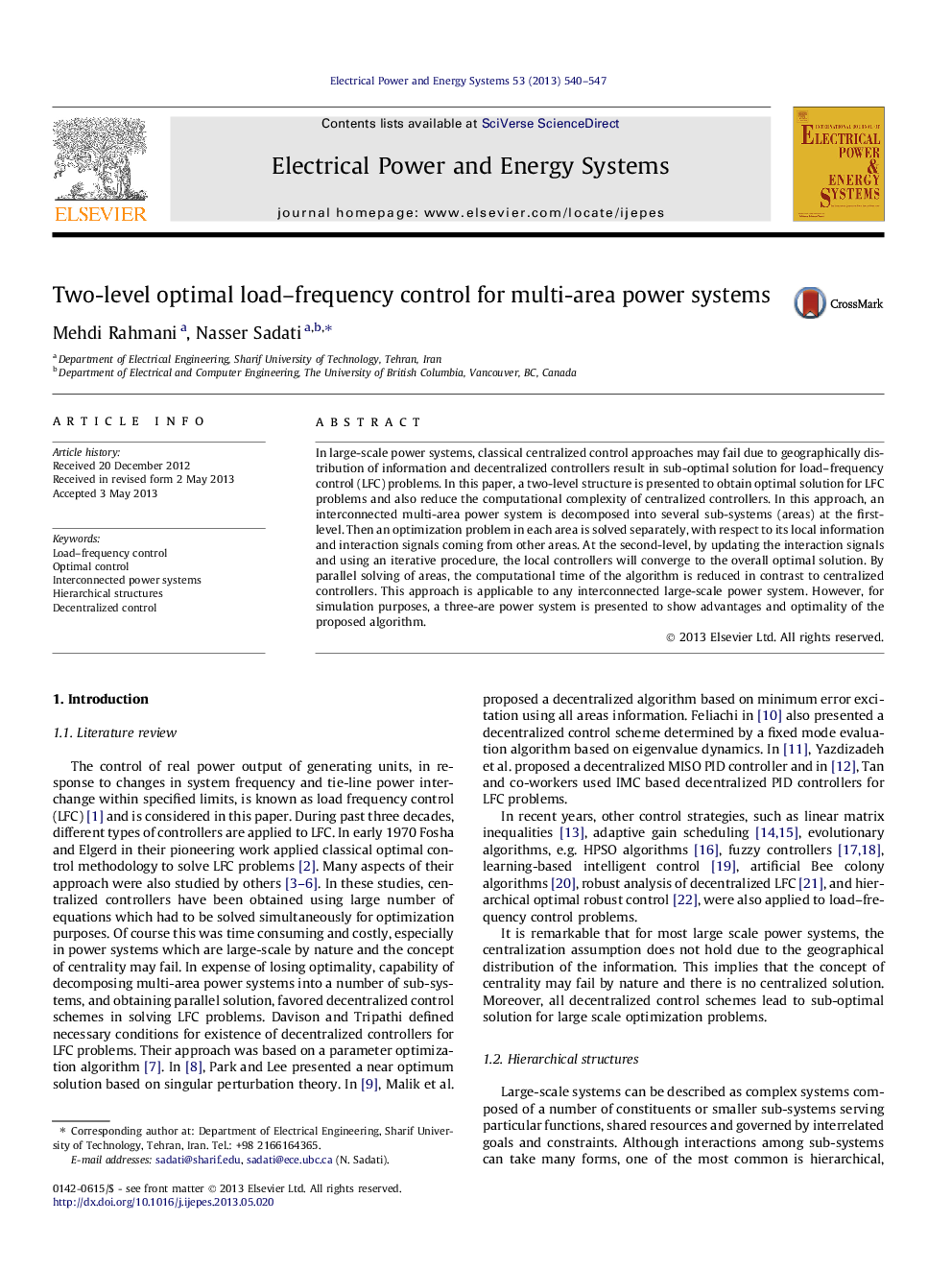| Article ID | Journal | Published Year | Pages | File Type |
|---|---|---|---|---|
| 6860737 | International Journal of Electrical Power & Energy Systems | 2013 | 8 Pages |
Abstract
In large-scale power systems, classical centralized control approaches may fail due to geographically distribution of information and decentralized controllers result in sub-optimal solution for load-frequency control (LFC) problems. In this paper, a two-level structure is presented to obtain optimal solution for LFC problems and also reduce the computational complexity of centralized controllers. In this approach, an interconnected multi-area power system is decomposed into several sub-systems (areas) at the first-level. Then an optimization problem in each area is solved separately, with respect to its local information and interaction signals coming from other areas. At the second-level, by updating the interaction signals and using an iterative procedure, the local controllers will converge to the overall optimal solution. By parallel solving of areas, the computational time of the algorithm is reduced in contrast to centralized controllers. This approach is applicable to any interconnected large-scale power system. However, for simulation purposes, a three-are power system is presented to show advantages and optimality of the proposed algorithm.
Keywords
Related Topics
Physical Sciences and Engineering
Computer Science
Artificial Intelligence
Authors
Mehdi Rahmani, Nasser Sadati,
